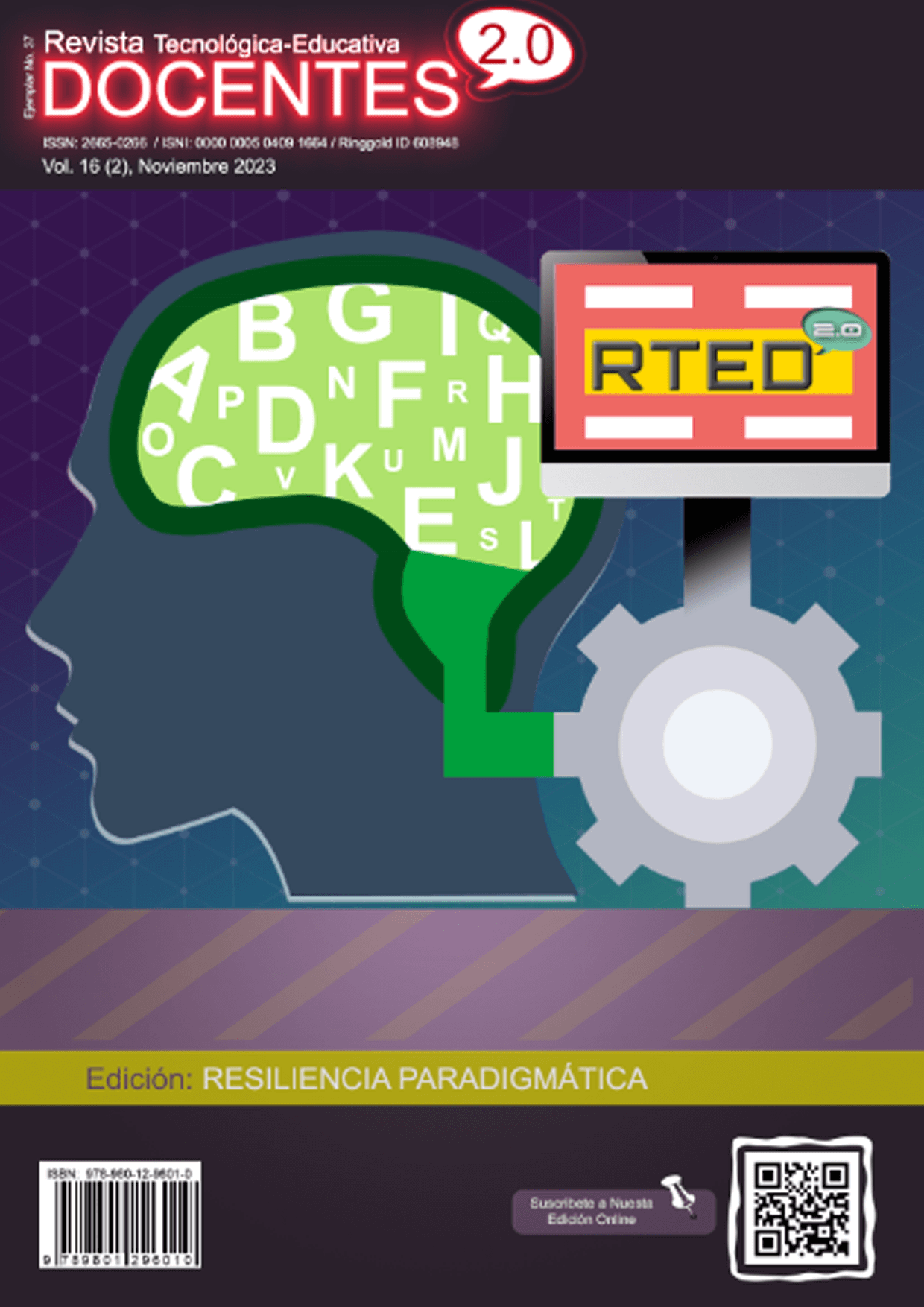Educational Models for the Teaching of History in Basic Education
 DOI:
https://doi.org/10.37843/rted.v16i2.385
DOI:
https://doi.org/10.37843/rted.v16i2.385
Main Article Content
Abstract
In teaching history, it has been possible to discover that the educational model that uses only the mere transmission of information and the memorization of data and characters is a failure since the students have not shown that, starting from this, they have communication skills. Reasoning and understanding lead them to generate knowledge. This essay is framed under the deductive method in the humanist paradigm, with a qualitative descriptive approach and a topical narrative design. The objective of the study is to describe the traditional teaching method and the constructivist teaching method in the history subject, establishing their advantages and disadvantages, verifying how the constructivist method, through the assimilation and generation of their judgments in the students, generates the learning of the history, favoring the analysis of the facts allowing to understand and compare current events giving rise to criticism.
Downloads
Metrics
Article Details

This work is licensed under a Creative Commons Attribution-NonCommercial-NoDerivatives 4.0 International License.
Those authors who have publications in our journal accept the following terms:
- When a work is accepted for publication, the author retains rights of reproduction, distribution of his/her article for exploitation in all countries of the world in the format provided by our magazine and any other magnetic medium, optical, and digital.
- Authors will retain their copyright and guarantee the journal the right first to publish their work, which will be simultaneously subject to the Creative Commons Acknowledgment License (Attribution-NonCommercial-NoDerivatives 4.0 International (CC BY-NC-ND 4.0)). That allows third parties to copy and redistribute the material in any medium or format, under the following conditions: Acknowledgment - You must properly acknowledge authorship, provide a link to the license, and indicate if any changes have been made. You may do so in any reasonable way, but not in a way that suggests you have the licensor's endorsement or receive it for your use. NonCommercial - You may not use the material for a commercial purpose. NoDerivatives - If you remix, transform, or build from the material, you cannot broadcast the modified material. There are no additional restrictions - You cannot apply legal terms or technological measures that legally restrict you from doing what the license allows.
- Authors may adopt other non-exclusive license agreements to distribute the published version of the work (e.g., deposit it in an institutional archive or publish it in a monographic volume) provided that the initial publication in this journal is indicated.
- Authors are allowed and recommended to disseminate their work through the Internet (e.g., in institutional telematic archives, repositories, libraries, or their website), producing exciting exchanges and increasing the published work's citations.
- Request of withdrawal an article has to be done in writing by the author to the Editor, becoming effective after a written response from the Editor. For this purpose, the author or authors will send correspondence via e-mail: [email protected].
- The author will not receive financial compensation for the publication of his work.
- All Docentes 2.0 Journal publications are under the Open Journal System (OJS) platform at: https://ojs.docentes20.com/.
References
Barberá, E. (2000). El constructivismo en la práctica. https://www.academia.edu/28462236/El_constructivismo_en_la_practica_AAVV
Junco, A. (2002). El constructivismo en la enseñanza de la historia: un enorme reto. Iber: Didáctica de las ciencias sociales, geografía e historia. http://hdl.handle.net/11162/87858
Medina, P., & Bittar, O. (2020). Enfoque Pedagógico en los Procesos de Supervisión Educativa en Educación Inicial. Negotium: revista de ciencias gerenciales. 16(47), 35-44. http://doi.org/10.5281/zenodo.4766430
Lombardi, Á. (2000). La enseñanza de la historia consideraciones generales. Revista de Teoría y Didáctica de las Ciencias Sociales. 5. 9-23 https://n9.cl/6cmnf
Martínez, A. (2013). Emergencias de cambio: Entre el modelo pedagógico tradicional y la necesidad de aprendizajes significativos. Revista Praxis. 9. 73-82. https://n9.cl/k46aj
Ortiz, D. (2015). El constructivismo como teoría y método de enseñanza. Revista Sophia, Colección de Filosofía de la Educación. 19. 93-110. DOI: 10.17163/soph.n19.2015.04 DOI: https://doi.org/10.17163/soph.n19.2015.04
Torres, A. (2003). Reflexiones sobre el Docente de Historia en la Venezuela Finisecular. Boletín de la Academia Nacional de la Historia. Pp. 68-80. https://biblat.unam.mx/hevila/BoletindelaAcademiaNacionaldelaHistoriaCaracas/2003/vol86/no341/7.pdf
Vergara-Ríos, G., & Cuentas-Urdaneta, H. (2015). Actual vigencia de los modelos pedagógicos en el contexto educativo. Revista Opción. 31(6). 914-934. https://n9.cl/afa4
Vives-Hurtado, M. P. (2016). Modelos Pedagógicos y Reflexiones para las Pedagogías del Sur. Boletín Virtual. 5(11). https://n9.cl/pva8m






